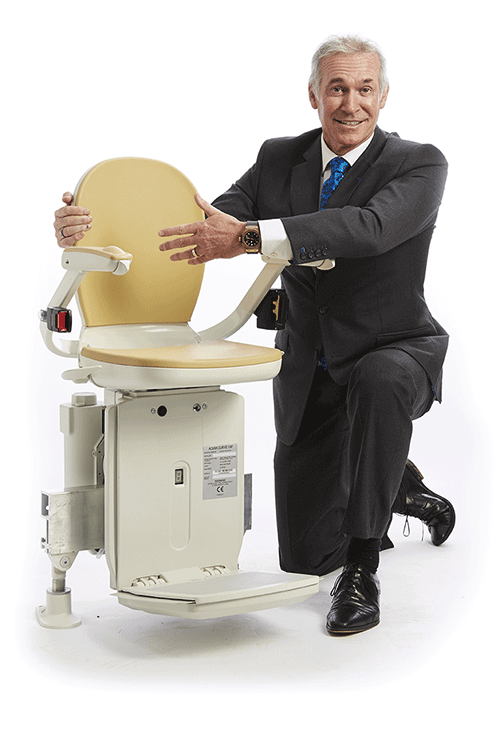Although surgery is something that many of us must go through at some point in our lives, that doesn’t make it any less nerve-racking. Let’s face it. Preparing for a serious surgery can be overwhelming and frankly frightening. However, with the proper preparation, you can keep your mind at ease and make surgery recovery a smoother process.
Read on to learn seven tips to prepare for surgery, as well as how Acorn Stairlifts can enhance your recovery process and make life easier.
1. Have a Talk with Your Doctor or Surgeon So You Know What to Expect—Ask Questions
Before any kind of surgery, whether minor or major, it is important to sit down and discuss all of the details with your doctor or surgeon. This is the time to ask any questions that you may have, whether it’s about the pre-surgery instructions, the surgery process itself, or what to expect during recovery. It is also helpful to bring a pen and paper to write down important information so you won’t forget anything. Having a professional talk through the process with you can help you feel more informed, confident, relaxed, and prepared going into your surgery.
2. Talk to Someone Who Has Had the Same Surgery
One of the best ways to calm pre-surgery nerves is to talk to someone who has already been through the same experience. Hearing a personal account from someone who has undergone the same surgery not only provides you with a sense of community but also gives you valuable insight into what to expect. Even if you do not know anyone personally that has undergone the same surgery as you, it is easy to find firsthand accounts of people who have on the internet. Even reading strangers’ experiences can help you feel more at ease and less alone on your health journey.
3. Fill All the Medications You’ll Need Beforehand
It is always important to have the medications prescribed by your doctor filled and ready to go before undergoing your surgery. That way, you will have everything you need on hand to manage pain and aid the recovery process immediately after getting out of surgery. Make a list of the medications you need for you and/or the people taking care of you during your surgery. This will help you and your caregivers keep track of all the medications you should be taking, as well as organize them in a way that is easy to remember.
4. Look into Getting a Caretaker, Friends, or Family to Help You Recover
 When undergoing surgery, you will need someone to drive you home afterward and help you out during recovery. Look into possibly hiring a caretaker or getting a friend or family member to care for you while you recover. Remember that after surgery, you may be bedridden or face mobility limitations that require another person’s assistance, so don’t be afraid to ask for the help you need.
When undergoing surgery, you will need someone to drive you home afterward and help you out during recovery. Look into possibly hiring a caretaker or getting a friend or family member to care for you while you recover. Remember that after surgery, you may be bedridden or face mobility limitations that require another person’s assistance, so don’t be afraid to ask for the help you need.
5. Make Modifications to Your Home for Easier Surgery Recovery—Get a Stair Lift Chair
It is essential that you plan ahead and make small modifications to your home that will make recovery easier. For example, if you expect to have physical limitations that impact your mobility, a good option would be to install a stair lift in your home to assist you in going up and down the stairs. Even with a caregiver, needing assistance every time you want to go up or down the stairs can be risky and limit your freedom significantly. However, from stairlifts for the elderly, to stairlifts for the disabled, to stairlifts for people recovering from surgeries, stair lift chairs are the ultimate solution for anyone with mobility limitations that will never compromise your home’s style or structure thanks to Acorn’s innovative installation process. An Acorn stair lift chair allows you to safely glide up and down the stairs, granting you full access to your home and the freedom to live on your own schedule.
6. Read Pre-Surgery Instructions Carefully and Follow Them
Make sure to carefully follow the pre-surgery instructions that your doctor/surgeon gives you. Depending on the specific surgical procedure, you may be asked to not eat or drink anything after midnight the night before your surgery or to not take certain medications up to a few weeks before your surgery. Other common pre-surgery instructions include wearing clean, loose-fitting clothing that is easy to remove; removing all jewelry, makeup, and nail polish before your surgery; and bringing someone with you to surgery that can drive you home after waking up from anesthesia. It is important that you follow these instructions, as the doctor may have to reschedule your surgery if you don’t, and no one wants that.
7. Get a Good Night’s Sleep and Relax
It can be hard to relax the night before surgery, especially if you are nervous. However, staying up all night panicking and running through possible scenarios in your head won’t help anyone. Try to relax and get a good night’s sleep to give your body the strength and stamina it will need during the recovery process. Remember that the surgery is for your own good and that you are in the capable hands of medical professionals that care about your wellbeing. Take some deep breaths, relax the muscles in your body, and close your eyes. You can do this.
Claim Your Free, No-Obligation Stairlift Quote and Home Survey from Acorn Today
If you are interested in installing a home stairlift from Acorn to help with your mobility, claim your free, no-obligation stairlift quote and home survey today. Don’t wait to start regaining your independence and reclaiming your life with your newfound mobility and freedom.

